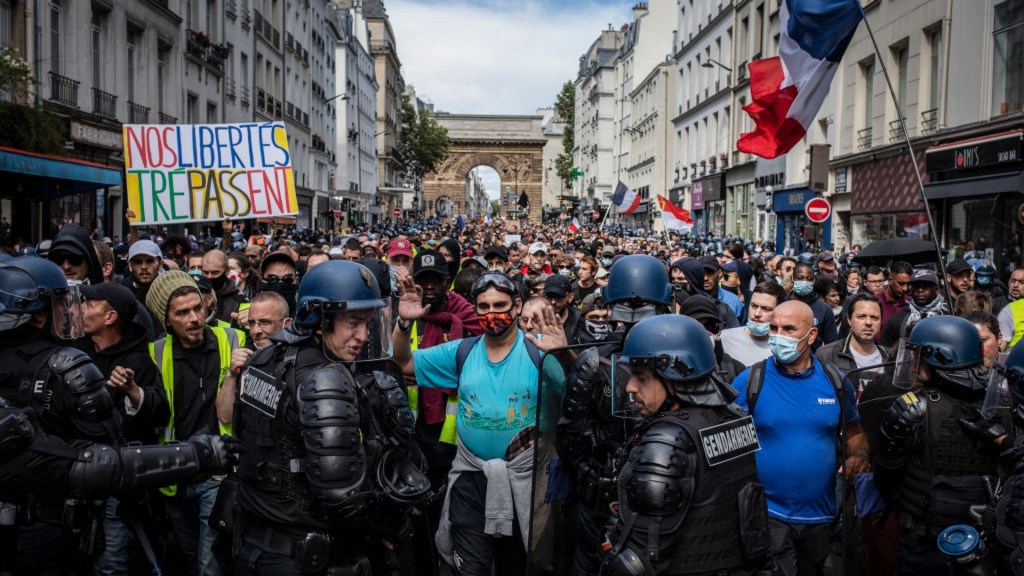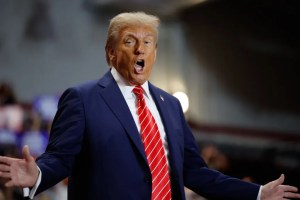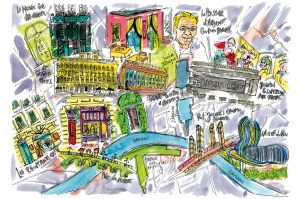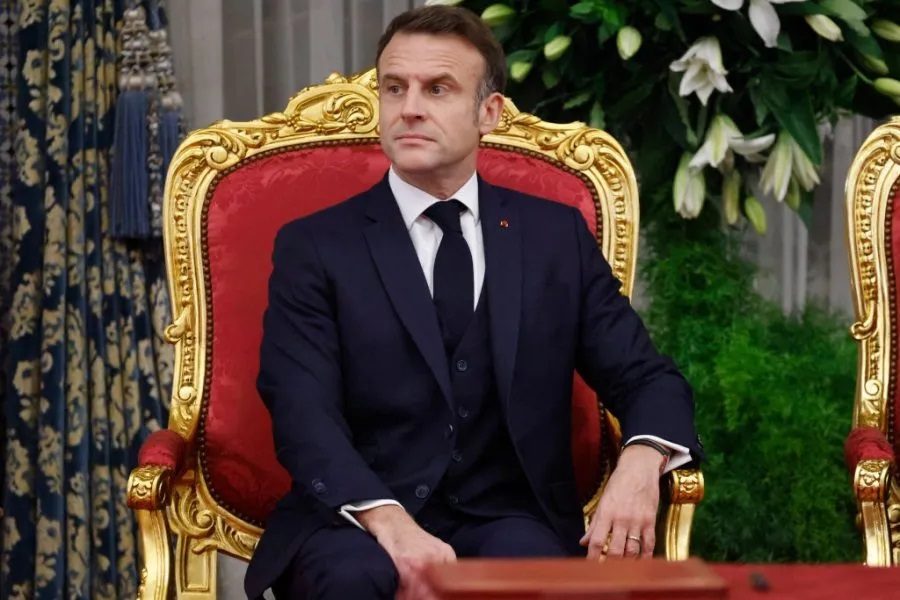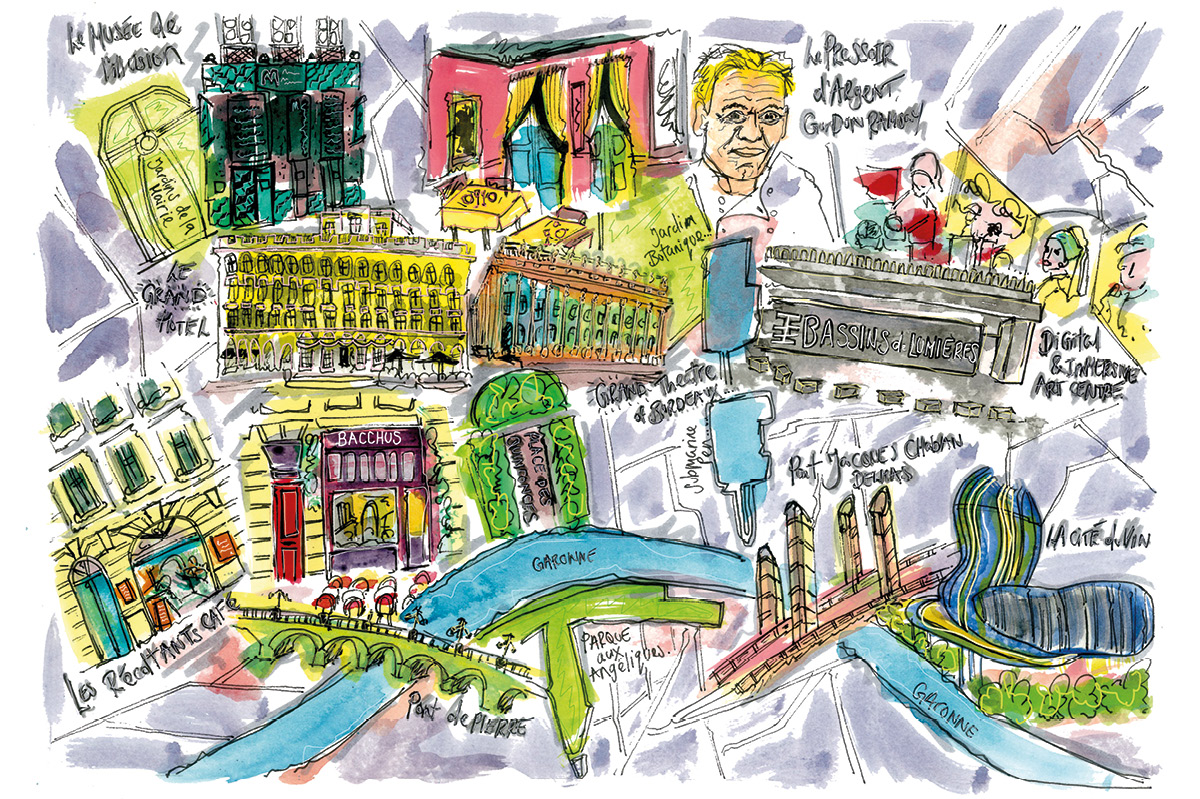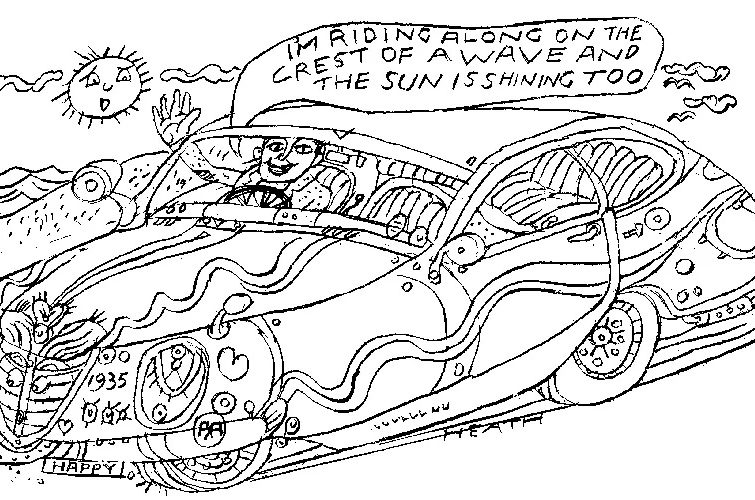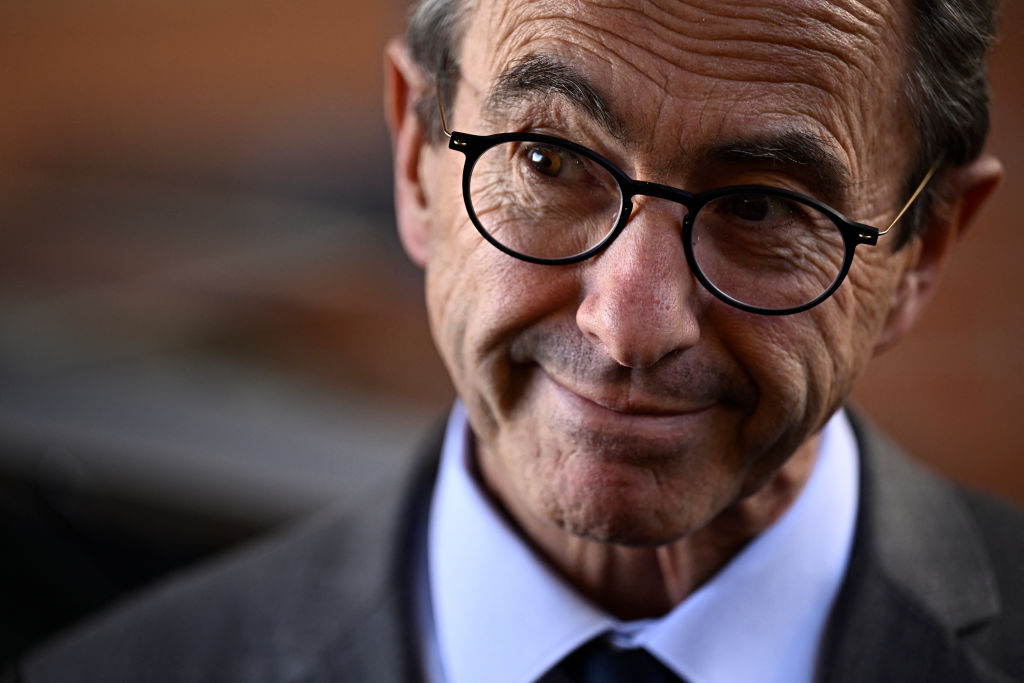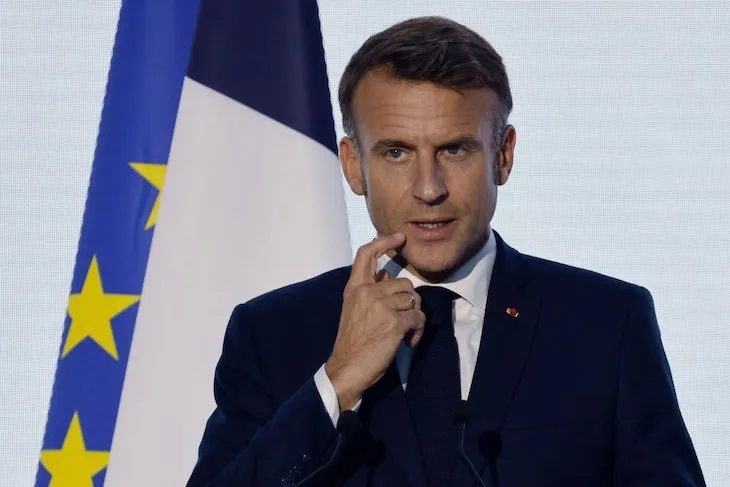The protest movement against Emmanuel Macron’s COVID passport, which comes into full effect today, continues to grow in France.
On Saturday over 200,000 men, women and children took to the streets, more than twice the number that demonstrated when the protests began on July 17. As a veteran of the Paris protests, I’ve found one of the most interesting aspects to be the reactions of passers-by as the cortège files through the streets of the capital. Some clap, some look on in contempt, others shout words of encouragement and a few hurl terms of abuse.
There’s no doubt the COVID passport has divided the people, and while the protest movement may be diverse, encompassing all colors, classes and ages (although I would estimate the average age of the protester to be in their 30s) there is more uniformity on the other side of the argument.
Those most supportive of the passport are baby boomers or, as the French call them, 68ers. When the COVID crisis struck France in March 2020 I forecast on this site that Macron’s virus strategy would be to ‘sacrifice’ the nation’s young to ensure the support of the elderly at next year’s election. ‘The 68ers are his most fervent supporters,’ I wrote. ‘In the 2017 presidential run-off with Marine Le Pen, 78 percent of over-70s voted for Macron, while the leader of the National Front polled best among the 25 to 49 demographic.’
That is what the president did, and so millennials sacrificed much to protect the over 60s, who represent 95 percent of France’s COVID deaths. In February this year it was suggested in some quarters that perhaps the young had done their bit, and any future lockdown should target just the elderly. Boomers were outraged. Gérard Larcher, the 71-year-old president of the Senate declared that an age-based lockdown would be discriminatory and divisive.
So France went into another general lockdown and schools joined nightclubs, bars, cinemas and amateur sports clubs in closing their doors. Six months later and how has the civic spirit of the young been rewarded? By the introduction of a COVID passport that will bar them from all the places they like to frequent unless they are vaccinated. Worse, many of the people who as of today will stand in doorways and demand proof of their vaccination are boomers, retired men and women who have answered the call to act as passport control staff.
The government made its first minor concession at the weekend when the health minister, Olivier Véran, announced that the unvaccinated will be able to access bars, cinemas and other public places, if they have had a negative COVID test in the past 72 hours, an increase of 24 hours.
The protest movement interpret this as the first sign the government’s nerve is weakening; the demonstrations are growing each week and they are bullish that come September there will be in excess of a million on the streets.
Macron, however, is also quietly confident that he has the support of the silent majority. He certainly has the backing of boomers, as he knew he would.
Make no mistake, the introduction of the COVID passport marked the launch of Macron’s 2022 election campaign. He announced its implementation in a speech on July 12, two weeks after the regional elections that were significant for their record abstention rates. Two-thirds of the French didn’t bother to vote, although for 18- to 34-year-olds the figure rose to 85 percent. In contrast, 60 percent of the over-70s voted, and they cast their ballot in the main for the Socialist party and the center-right Republicans.
Macron had assumed the Republicans were dead and buried but signs of their resurrection in the regional elections troubled him. He hopes the COVID passport will woo their supporters his way. So far he’s succeeding in his courtship.
A poll published last week revealed that the protest movement is most popular with the working class and among supporters of Marine Le Pen’s National Rally and Jean-Luc Mélenchon, of the left-wing France Insoumise. In contrast, 64 percent of over-65s disapprove of the protest movement, which is also unpopular with voters who identity as Republicans (62 percent).
Similarly, the decision this summer by many regions to reimpose the mandatory wearing of masks outdoors is supported most by the over-65s (92 percent) and least by the young and those who declare allegiance to Mélenchon.
Why would Macron offer any more concessions when the COVID passport is popular with the people he is counting on to return him to power next year? His intransigence will likely be matched by the protesters. The young in France are aggrieved and alienated. They have no political voice in parliament and street demonstrations are the only way of making themselves heard. Macron may be insouciant about the protests for the moment but others are less sanguine.
Jérôme Fourquet, a veteran political analyst, warned last week that the protest movement is potentially far more dangerous to France than the Yellow Vests. Their anger was directed at the president and his government, but this time ‘it is a confrontation between citizens and incidents could be more numerous and less controlled.’
Fourquet’s bleak depiction of the state of the nation is echoed by the writer and former advisor to Nicolas Sarkozy, Maxime Tandonnet. He described the division not just as generational but also one of class. ‘It’s a constant in the history of France,’ he noted, ‘that those who are the first to rise up in the defense of liberty…are in the general the young and the less fortunate.’
What worries Tandonnet specifically is that those who are most in favor of the passport are ‘bien pensants’ who don’t conceal their contempt for those participating in the demonstrations each Saturday. The disdain is mutual, says Tandonnet. ‘Rarely in recent history have the French hated each other as much as they do today…the situation is terribly volatile and explosive.’
The COVID passport has been a success in that it has achieved Macron’s objective of boosting vaccine uptake among the most reluctant. But at what cost to society? The young will not forget the way they have been bullied and threatened by their president, and nor are they likely to forget the selfishness of the 68ers who are as spoiled now as they were half a century ago.
This article was originally published on The Spectator’s UK website.



